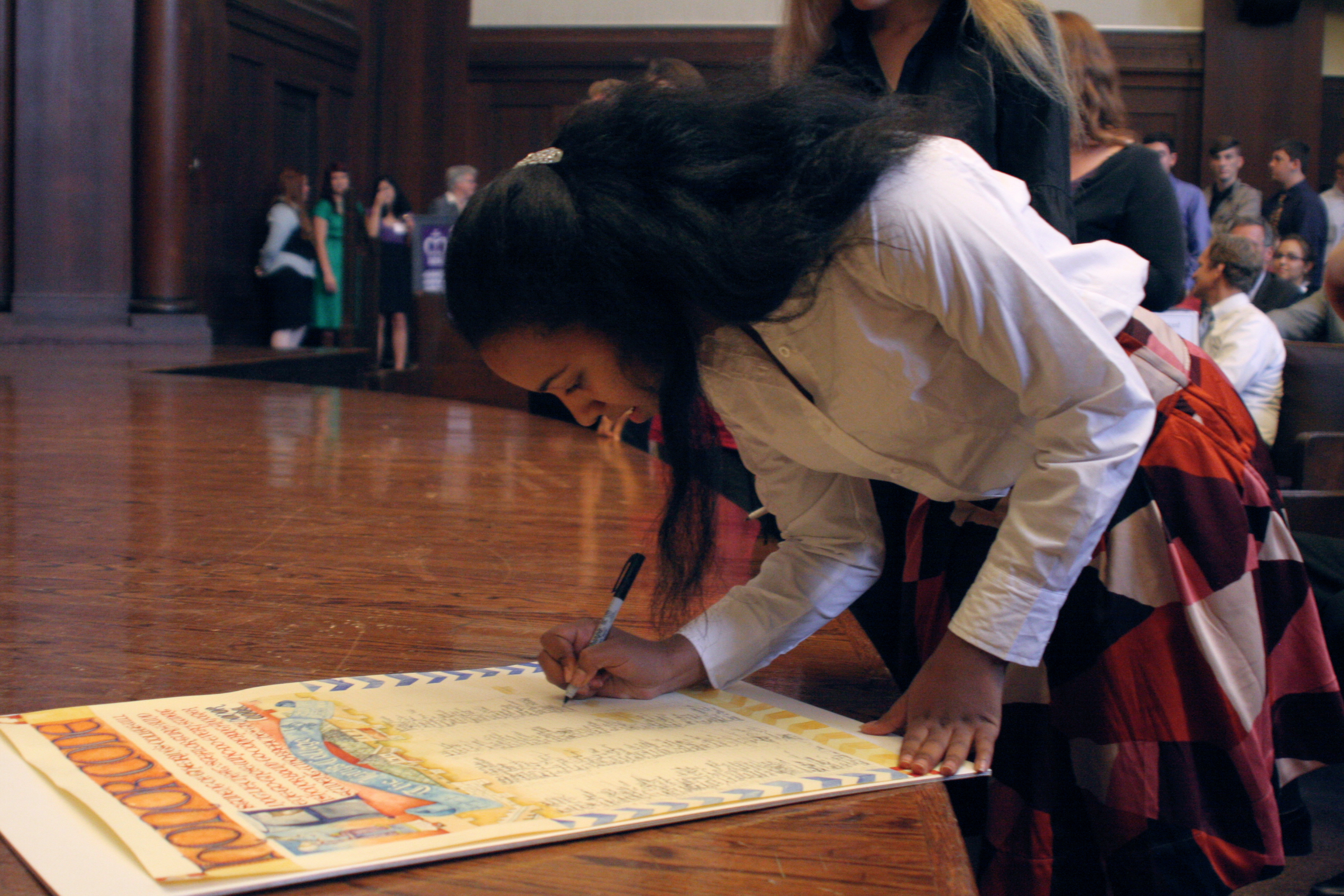What’s Love Got to Do with It?
At The King’s College, we call students to confront. But if we confront in a judgmental spirit, we miss the boat. If kindness—mercy, love—is left out of the equation, we become a noisy gong, a clanging symbol.

Something strange is afoot at Lincoln High School in Walla Walla, WA. Over the past couple of years, suspensions have dropped by a stunning 85%. It’s not because kids are acting out less; it’s because school administrators adopted a new approach to student discipline.
Jane Ellen Stevens explains, “A student blows up at a teacher, drops the F-bomb. The usual approach at Lincoln… is automatic suspension. Instead, [the Principle] sits the kid down and says quietly: ‘Wow. Are you OK? This doesn’t sound like you. What’s going on?’ He gets even more specific: ‘You really looked stressed. On a scale of 1-10, where are you with your anThe student was not ready for kindness. Kindness changed the tone of the entire interaction.
At The King’s College, we call students to confront. But if we confront in a judgmental spirit, we miss the boat. If kindness—mercy, love—is left out of the equation, we become a noisy gong, a clanging symbol.
If, however, our approach is one of love, a concern for the wellbeing of the other, we do well. This doesn’t mean confrontation will be easy—it never is—but it does mean that we will approach the person in the right spirit. Instead of accusing, we seek to understand. Instead of throwing stones, we seek to help the person move to a better place.
If I’m honest, my first impulse when confronting someone is to prove the person wrong and myself right. This attitude is utterly unhelpful. I’ve found it useful to do a gut check just before I confront: Am I approaching this person out of a concern for him? Am I seeking his wellbeing? Do I think I’m better than him?
Thomas Aquinas describes love as “the mother and root of all virtue.” Love is the source of all true virtue. We confront others when necessary, not to feel superior or to prove others wrong, but because confrontation, done in love, is a virtuous deed. “Brotherly correction,” writes Aquinas, “is an act of love.” Through such acts of love, we seek one another’s good above our own.




